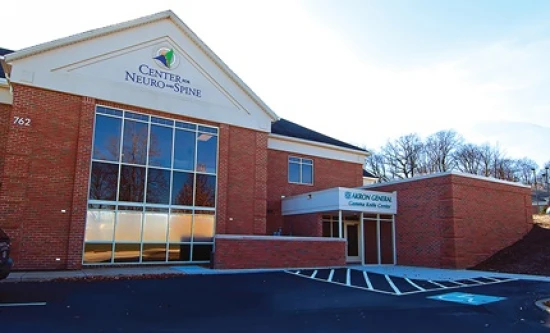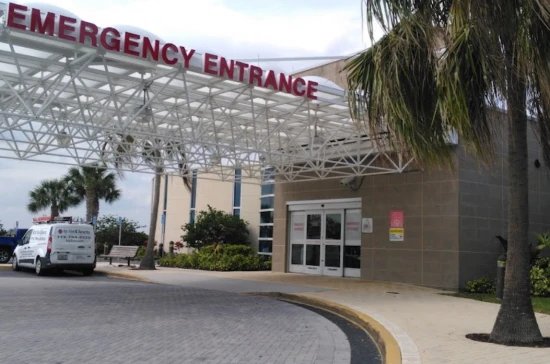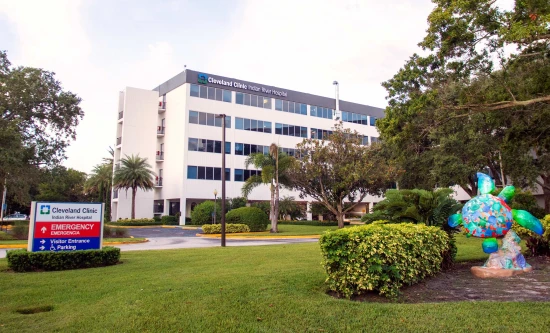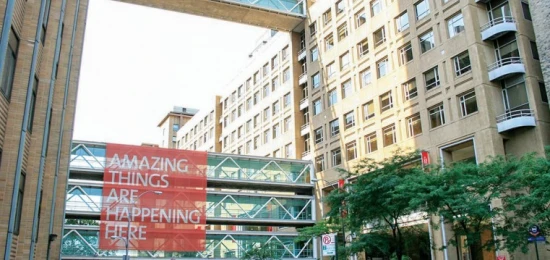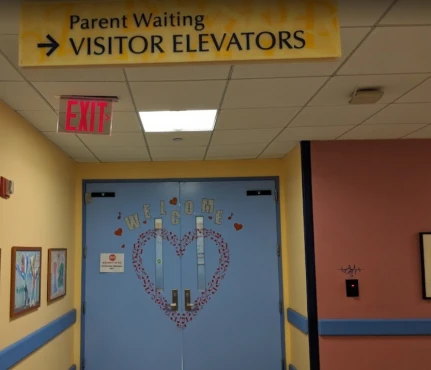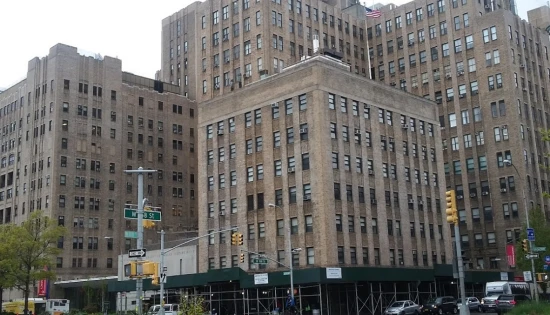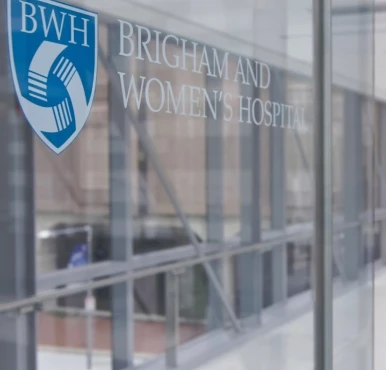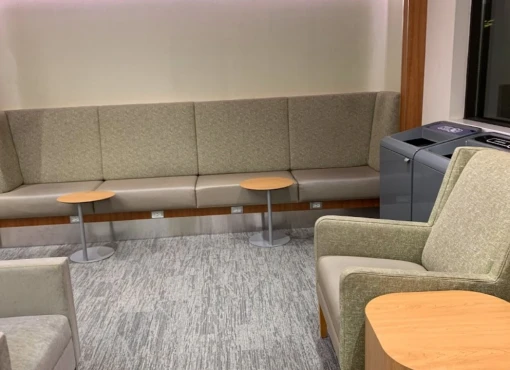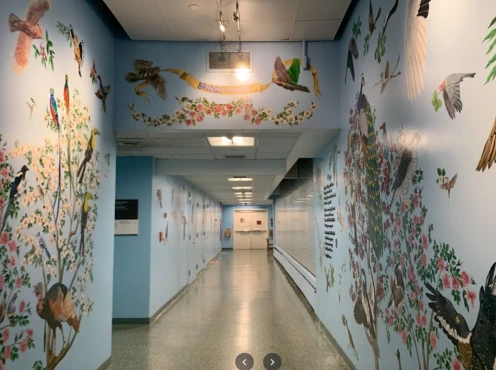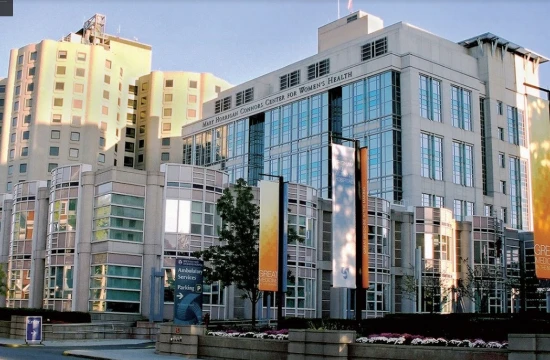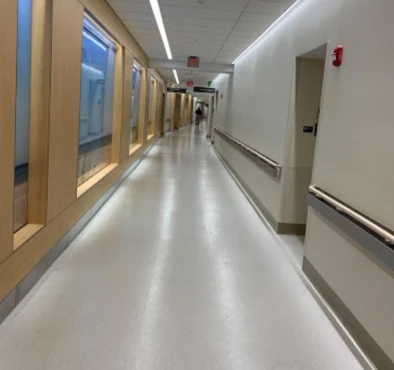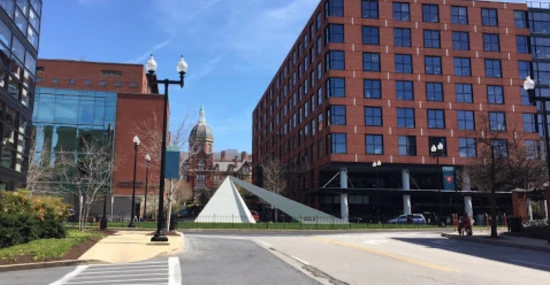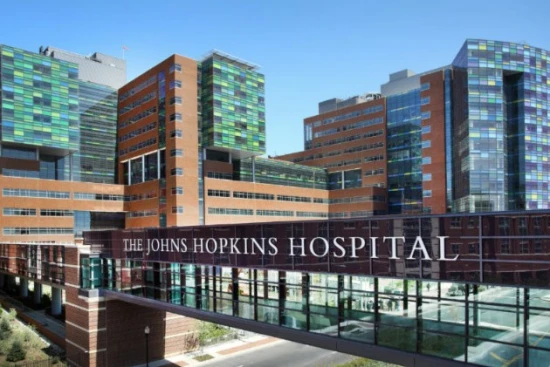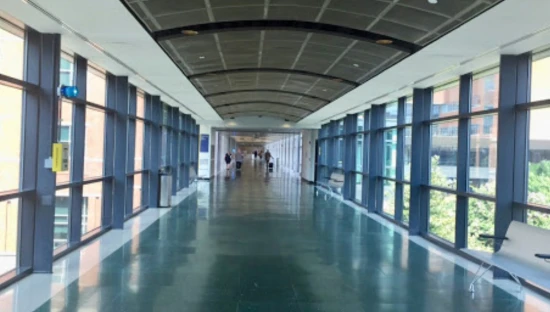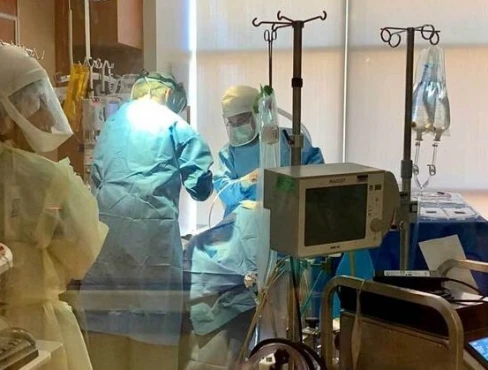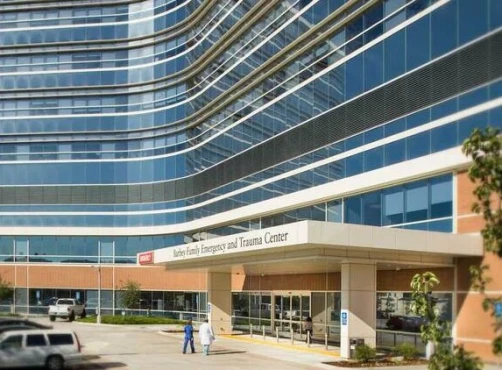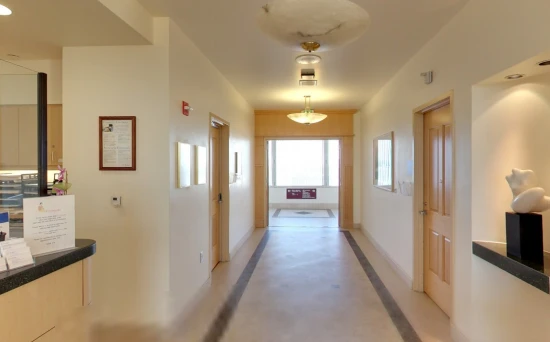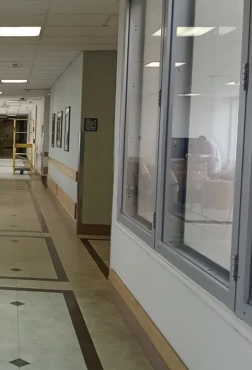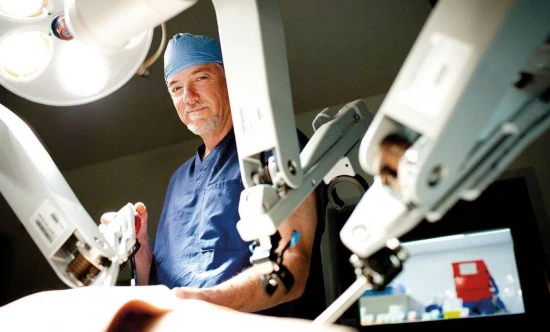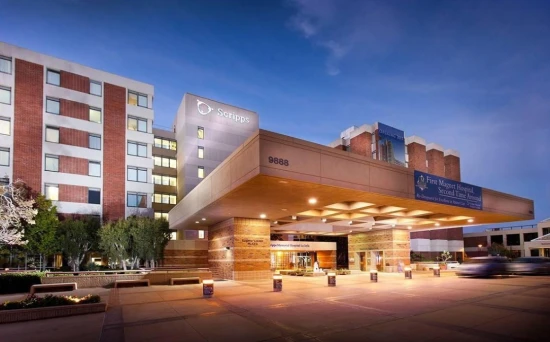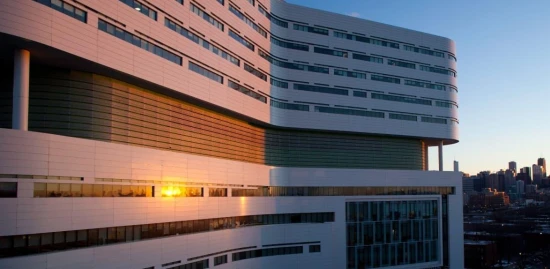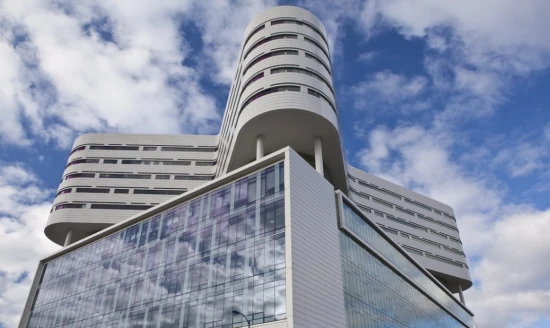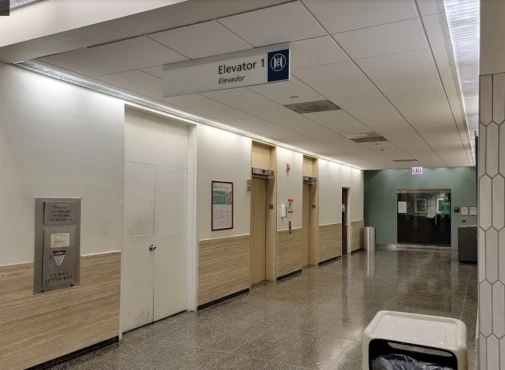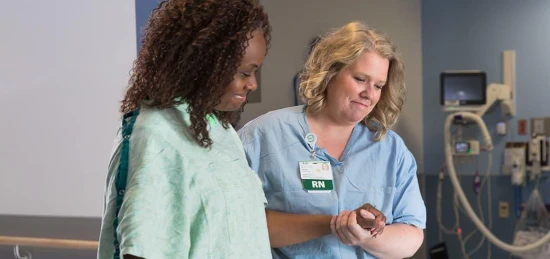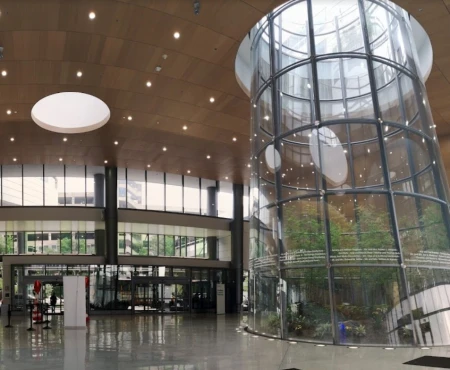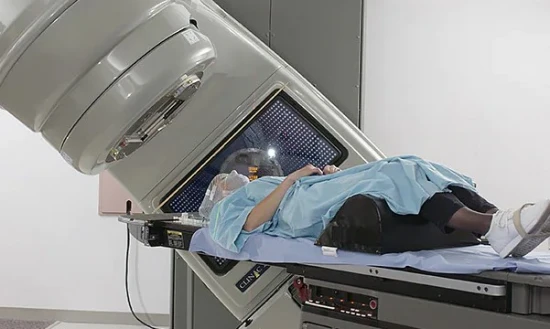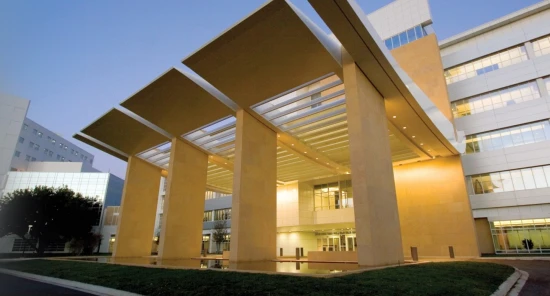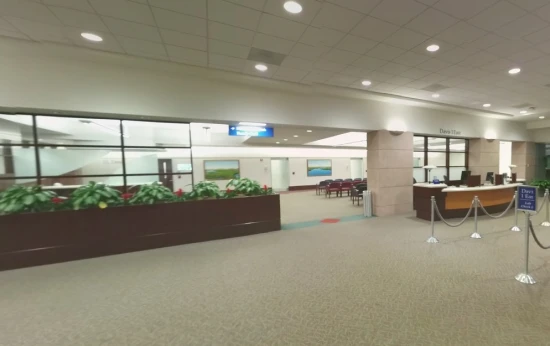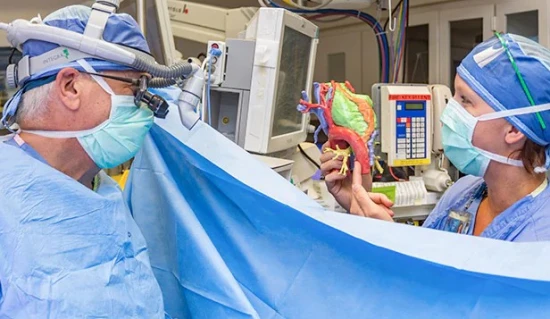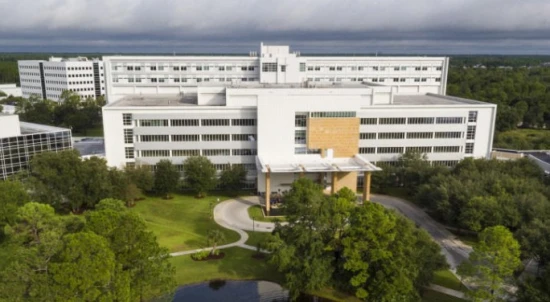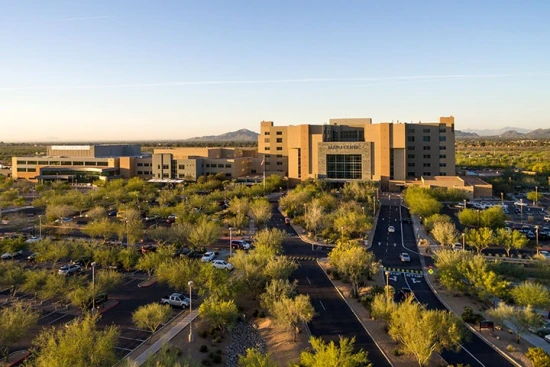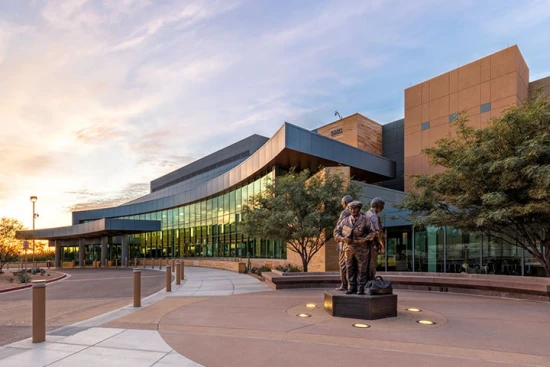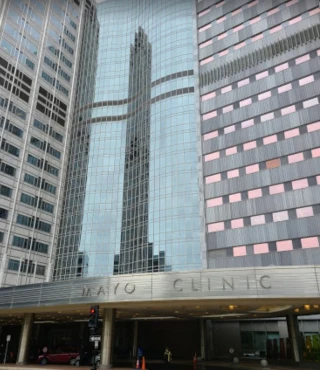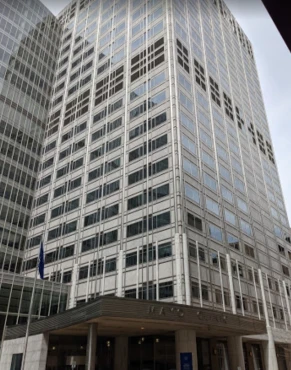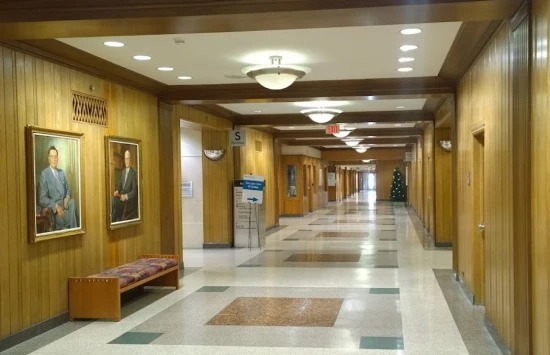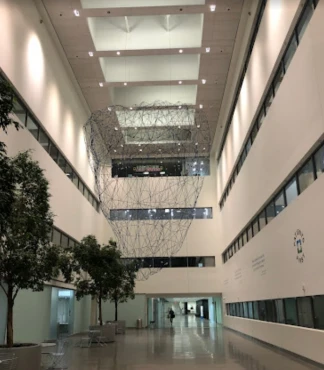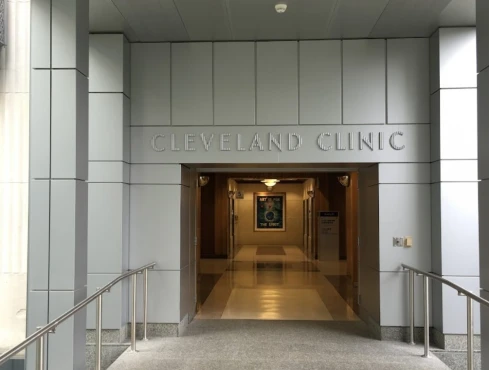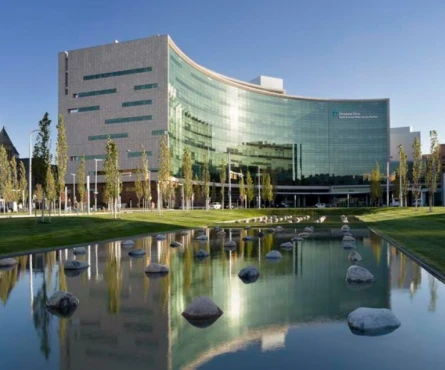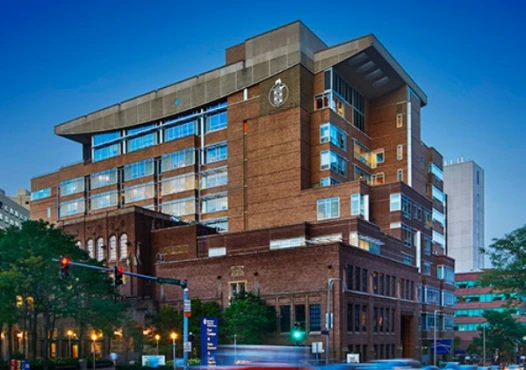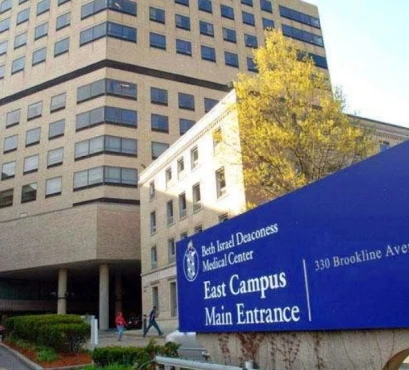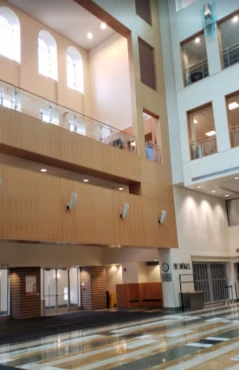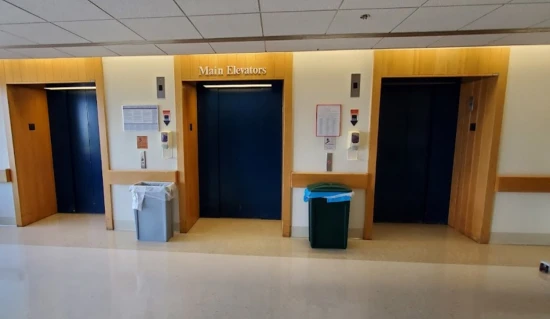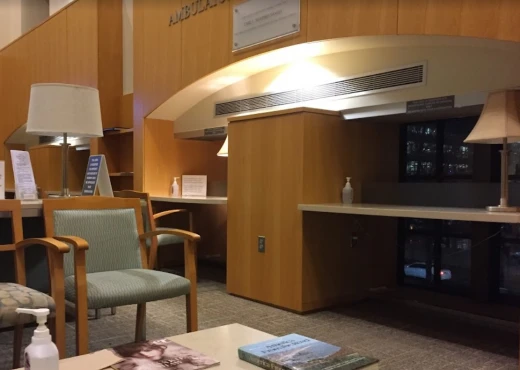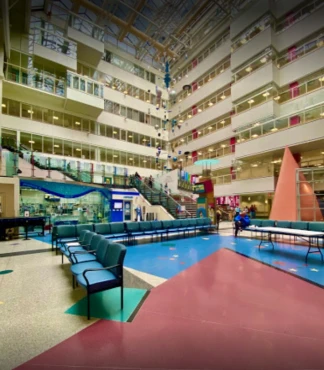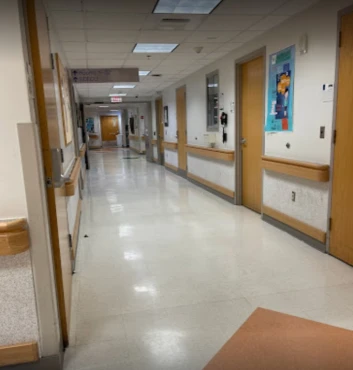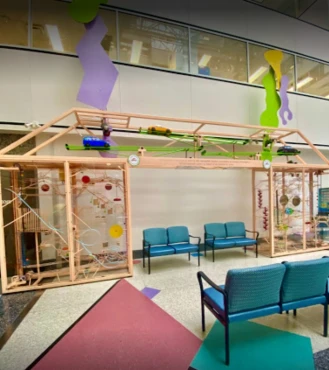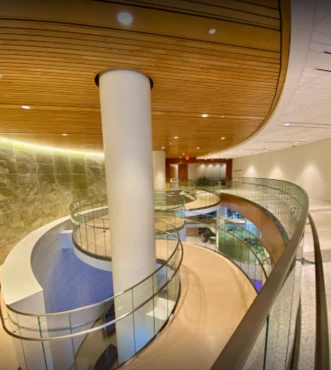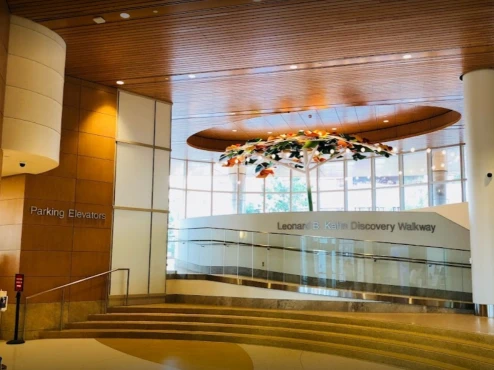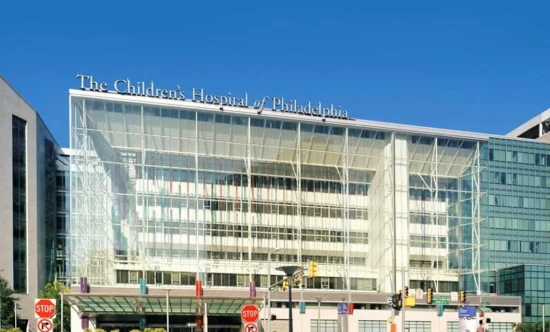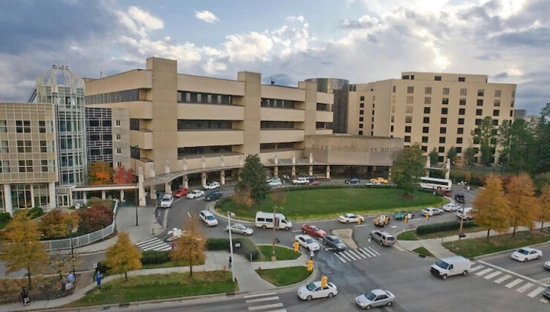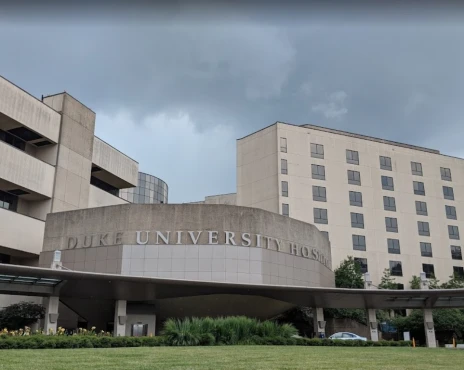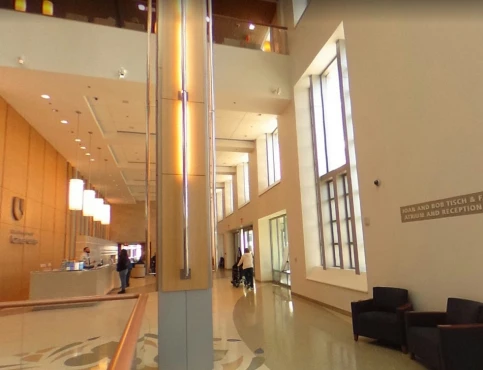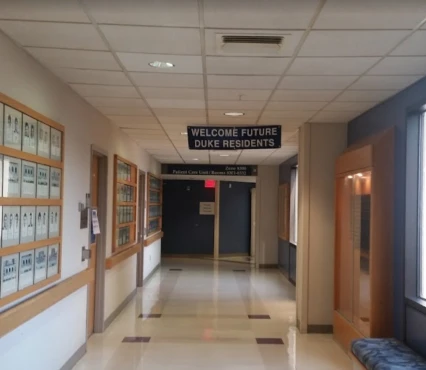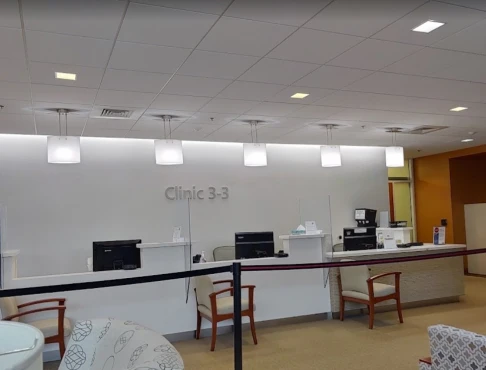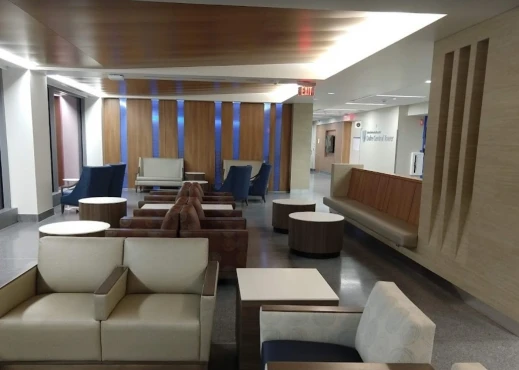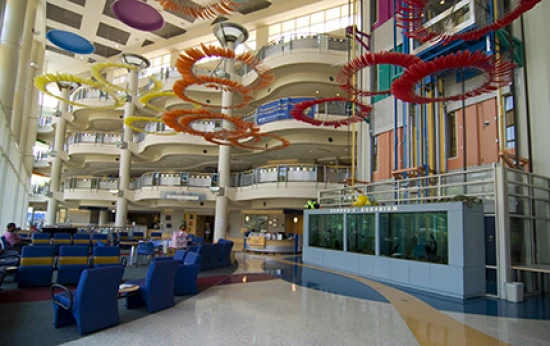Parkinson's disease treatment in 14 Neurosurgery and Oncology clinics in United States
14 clinics specializing in Neurosurgery and Oncology providing treatment of
Parkinson's disease
Parkinson's disease is a progressive neurological disorder that affects movement and coordination. It is characterized by symptoms like tremors, stiffness, and difficulty with balance and gait, caused by the loss of dopamine-producing nerve cells in the brain.
Read more...
in United States.
-
Deep brain stimulation (DBS)
≈ $74,420
-
Pallidotomy
≈ $43,256
-
Brain tumors surgery
≈ $67,022
-
Peripheral nerve repair
≈ $18,824
-
Nerve decompression surgery
≈ $18,336
-
Surgical neurolysis
≈ $10,836
-
Epidural block
≈ $3,672
-
Endoscopic pituitary surgery
≈ $60,173
-
Benign peripheral nerve tumor removal
≈ $15,905
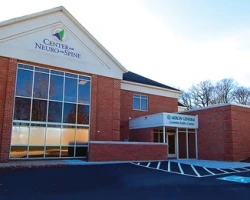
-
Deep brain stimulation (DBS)
≈ $74,420
-
Pallidotomy
≈ $43,256
-
Brain aneurysm repair
≈ $44,100
-
Brain aneurysm clipping
≈ $71,423
-
Microvascular decompression (MVD)
≈ $41,711
-
Arteriovenous malformation (AVM) resection
≈ $69,721
-
Brain tumors surgery
≈ $67,022
-
Hemicolectomy
≈ $27,565
-
Rectum anterior resection
≈ $42,146
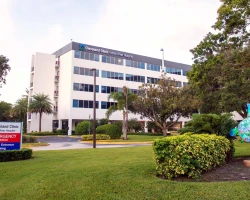
-
Functional neurosurgery
≈ $40,325
-
Deep brain stimulation (DBS)
≈ $74,420
-
Pallidotomy
≈ $43,256
-
Brain aneurysm repair
≈ $44,100
-
Brain aneurysm clipping
≈ $71,423
-
Microvascular decompression (MVD)
≈ $41,711
-
Arteriovenous malformation (AVM) resection
≈ $69,721
-
Brain tumors surgery
≈ $67,022
-
Peripheral nerve repair
≈ $18,824
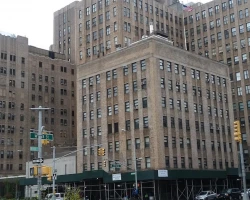
-
Functional neurosurgery
≈ $40,325
-
Deep brain stimulation (DBS)
≈ $74,420
-
Pallidotomy
≈ $43,256
-
Brain aneurysm repair
≈ $44,100
-
Brain aneurysm clipping
≈ $71,423
-
Microvascular decompression (MVD)
≈ $41,711
-
Arteriovenous malformation (AVM) resection
≈ $69,721
-
Brain tumors surgery
≈ $67,022
-
Peripheral nerve repair
≈ $18,824
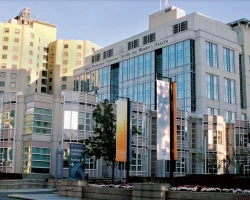
-
Deep brain stimulation (DBS)
≈ $74,420
-
Pallidotomy
≈ $43,256
-
Brain aneurysm repair
≈ $44,100
-
Brain aneurysm clipping
≈ $71,423
-
Microvascular decompression (MVD)
≈ $41,711
-
Arteriovenous malformation (AVM) resection
≈ $69,721
-
Brain tumors surgery
≈ $67,022
-
Peripheral nerve repair
≈ $18,824
-
Nerve decompression surgery
≈ $18,336
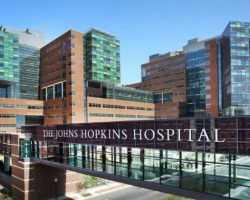
-
Deep brain stimulation (DBS)
≈ $74,420
-
Pallidotomy
≈ $43,256
-
Brain aneurysm repair
≈ $44,100
-
Brain aneurysm clipping
≈ $71,423
-
Microvascular decompression (MVD)
≈ $41,711
-
Arteriovenous malformation (AVM) resection
≈ $69,721
-
Surgical neurolysis
≈ $10,836
-
Epidural block
≈ $3,672
-
Robotic-assisted hysterectomy
≈ $62,160
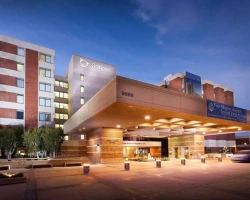
-
Functional neurosurgery
≈ $40,325
-
Deep brain stimulation (DBS)
≈ $74,420
-
Pallidotomy
≈ $43,256
-
Brain aneurysm repair
≈ $44,100
-
Brain aneurysm clipping
≈ $71,423
-
Microvascular decompression (MVD)
≈ $41,711
-
Arteriovenous malformation (AVM) resection
≈ $69,721
-
Brain tumors surgery
≈ $67,022
-
Surgical neurolysis
≈ $10,836
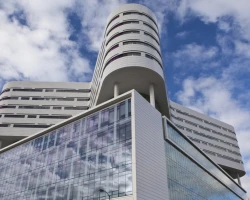
-
Functional neurosurgery
≈ $40,325
-
Deep brain stimulation (DBS)
≈ $74,420
-
Pallidotomy
≈ $43,256
-
Brain aneurysm repair
$110,710 - $170,315
-
Brain aneurysm clipping
≈ $71,423
-
Microvascular decompression (MVD)
≈ $41,711
-
Arteriovenous malformation (AVM) resection
≈ $69,721
-
Brain tumors surgery
≈ $67,022
-
Peripheral nerve repair
≈ $18,824
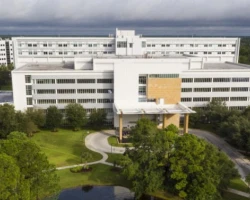
-
Functional neurosurgery
≈ $40,325
-
Deep brain stimulation (DBS)
$84,770 - $113,025
-
Pallidotomy
≈ $43,256
-
Brain aneurysm repair
$153,780 - $205,035
-
Brain aneurysm clipping
≈ $71,423
-
Microvascular decompression (MVD)
≈ $41,711
-
Arteriovenous malformation (AVM) resection
≈ $69,721
-
Brain tumors surgery
≈ $67,022
-
Peripheral nerve repair
≈ $18,824
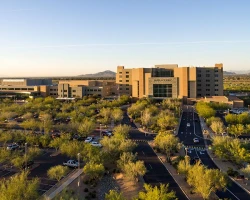
-
Functional neurosurgery
≈ $40,325
-
Deep brain stimulation (DBS)
≈ $74,420
-
Pallidotomy
≈ $43,256
-
Brain aneurysm repair
$135,635 - $150,700
-
Brain aneurysm clipping
≈ $71,423
-
Microvascular decompression (MVD)
≈ $41,711
-
Arteriovenous malformation (AVM) resection
≈ $69,721
-
Brain tumors surgery
≈ $67,022
-
Peripheral nerve repair
≈ $18,824
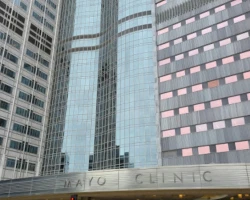
-
High intensity focused ultrasound (HIFU)
≈ $27,565
-
Brain tumors surgery
≈ $67,022
-
Surgical neurolysis
≈ $10,836
-
Epidural block
≈ $3,672
-
Radical nephrectomy
≈ $51,810
-
Parotidectomy
≈ $15,664
-
Total esophagectomy
≈ $60,960
-
Lumpectomy
≈ $15,435
-
Endoscopic pituitary surgery
≈ $60,173
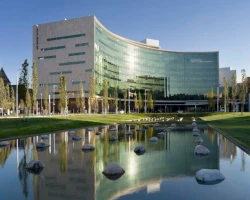
-
Functional neurosurgery
≈ $40,325
-
Deep brain stimulation (DBS)
≈ $74,420
-
Pallidotomy
≈ $43,256
-
Brain aneurysm repair
≈ $44,100
-
Brain aneurysm clipping
≈ $71,423
-
Microvascular decompression (MVD)
≈ $41,711
-
Arteriovenous malformation (AVM) resection
≈ $69,721
-
Brain tumors surgery
≈ $67,022
-
Peripheral nerve repair
≈ $18,824
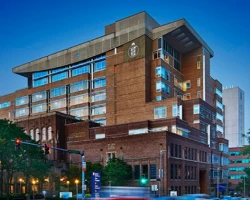
-
Deep brain stimulation (DBS)
≈ $74,420
-
Pallidotomy
≈ $43,256
-
Brain tumors surgery
≈ $67,022
-
Surgical neurolysis
≈ $10,836
-
Epidural block
≈ $3,672
-
Radical nephrectomy
≈ $51,810
-
Parotidectomy
≈ $15,664
-
Total thyroidectomy
≈ $21,610
-
Major liver resection
≈ $33,075
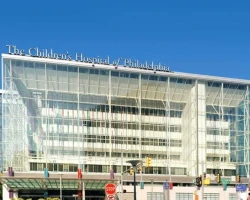
-
Functional neurosurgery
≈ $40,325
-
Deep brain stimulation (DBS)
≈ $74,420
-
Pallidotomy
≈ $43,256
-
Brain aneurysm repair
≈ $44,100
-
Brain aneurysm clipping
≈ $71,423
-
Microvascular decompression (MVD)
≈ $41,711
-
Arteriovenous malformation (AVM) resection
≈ $69,721
-
Brain tumors surgery
≈ $67,022
-
Peripheral nerve repair
≈ $18,824
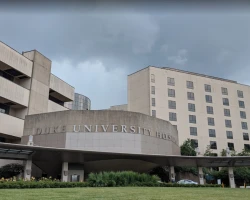
Clinics grouping by rating
Clinic with the highest rating of 5 — Cleveland Clinic Akron General in Akron, United States, clinic with the most reviews number of 1569 — Beth Israel Deaconess Medical Center (BIDMC) in Boston, United States.
With rating 4.0 and over — 4 clinics .
Countries with the highest number of clinics treating the diseases:
Parkinson's disease:
Related procedures:
Quick navigation
- Brain shunt surgery $54,410 - $98,715
- Cholecystectomy $15,973 - $39,015
- Corpus callosotomy ≈ $42,577
- Craniofacial surgery ≈ $37,530
- Distal gastric resection ≈ $24,702
- Duodenectomy ≈ $17,725
- Elevation of depressed skull fracture ≈ $39,520
- Endoscopic septostomy ≈ $34,584
- Endoscopic third ventriculostomy (ETV) ≈ $32,763
- Esophagogastrectomy ≈ $151,240
- Extended cholecystectomy ≈ $44,503
- Extracranial CSF drainage by request
- Focal resection ≈ $34,753
- Functional hemispherectomy ≈ $64,604
- Gastric endoscopic submucosal dissection (ESD) ≈ $8,913
- Jejunostomy ≈ $22,805
- Laparoscopic cholecystectomy $19,845 - $60,580
- Laproscopic total gastrectomy ≈ $49,904
- Laser interstitial thermal therapy (LITT) ≈ $61,740
- Lumbar puncture ≈ $3,387
- Bell's palsy
- Benign bone tumor
- Bone cancer
- Brain metastases
- Cavernous angioma
- Cavernous hemangioma
- Cerebral cavernous malformation (CCM)
- Cerebrospinal fluid leak (CSF)
- Cerebrovascular occlusive disease
- Chronic pain
- Craniofacial injury
- Craniopharyngioma
- Eye cancer
- Eye melanoma
- Glossopharyngeal neuralgia
- Head and neck cancer
- Hemifacial spasm
- Hip osteoarthritis
- Intracranial atherosclerotic stenosis (ICAS)
- Intraventricular tumor
